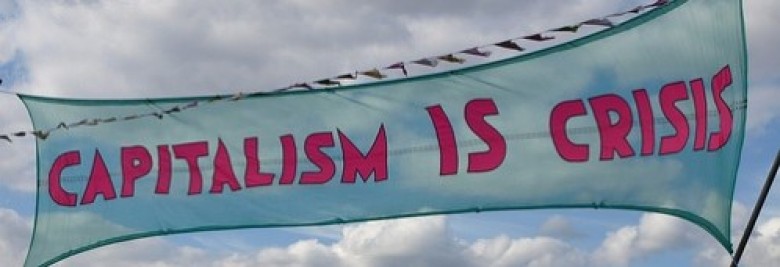RECOGNITION, CONFLICT AND THE PROBLEM OF GLOBAL ETHICAL COMMUNITY
Call for Papers: ‘Recognition, Conflict and the Problem of Global Ethical Community’
Global Discourse: An Interdisciplinary Journal of Current Affairs and Applied Contemporary Thought
Volume 4: Issue 2: June 2014
Recognition refers to those sociological processes whereby two or more entities (such as states), groups (such as ethnic or cultural communities) or individuals interact with one another and come to understand themselves, and the other, as mutually free individuals: as social agents whose identities, interests and outlooks are equally bound together. Without the foundational act of recognition, relations can become unequal and antagonistic, leading to social pathologies, denigration and even open conflict.
Recognition processes are manifested at every level of political life. States are acutely aware of the importance of their recognition as sovereign entities by others in the international community and what the absence of such recognition can mean for their own legitimacy and security. Similarly, recognition processes are also central to the level of cosmopolitan social-relations in world politics, that is, at the level of groups and individuals across different states and communities. One can think here of the recognition acts performed by Non-Governmental Organisations (NGOs) to the more ‘everyday’ acts of recognition in trade, commerce, travel and migration. One can also think of the negative corollaries of misrecognition or denigration in IR by which genocides and mass atrocities are typically committed.
Recognition then, plays a foundational role in International Relations because it is only through recognition that states establish their sovereign legitimacy in international society, and, it is only through recognition in interpersonal interactions at the cosmopolitan level that humans can begin to interact with distant others amicably. Yet, despite the centrality of recognition in world politics, we know very little about how recognition processes operate in the sphere of world politics. This issue of Global Discourse will examine the implications of recognition theory in helping to understand the problem of conflict and the possibilities for forging a form of global ethical community. Bringing together leading international scholars of recognition theory in world politics and containing two review symposia on recently published monographs on the topic, the issue will discuss the potential for recognition to pacify relations between states, groups and individuals and to develop recognition processes in the global community.
Generally, submissions can be based around the following:
– processes and politics of recognition in world politics
– state forms of recognition, non-recognition and misrecognition
– linkages between conflict (local, national and interstate), violence, security and recognition
– linkages between peacebuilding, reconciliation and recognition
– forms of recognition above and between states in world politics
– the relation between recognition and international solidarity and the expansion of rights
Building upon previous symposia with the likes of Noam Chomsky, Andrew Linklater, Guy Standing, David Graeber and Michael Shapiro, the issue will contain a review symposium with Erik Ringmar and Thomas Lindemann, who will respond to reviews of their The Struggle for Recognition in International Relations.
Submission deadlines
Abstracts: August 1st 2013
Full articles of around 8,000 words (solicited on the basis of review of abstracts): December 1st 2013
Publication: June 2014
Instructions for authors:
http://www.tandfonline.com/action/authorSubmission?journalCode=rgld20&page=instructions#.UX-WG8qSJHo
Further details: http://www.tandfonline.com/rgld (previous website: http://global-discourse.com)
Editor contact details: s.brincat@uq.edu.au and matthew.johnson@york.ac.uk
Journal Aims and Scope
Global Discourse is an interdisciplinary, problem-oriented journal of applied contemporary thought operating at the intersection of politics, international relations, sociology and social policy. The journal’s scope is broad, encouraging interrogation of current affairs with regard to core questions of distributive justice, wellbeing, cultural diversity, autonomy, sovereignty, security and recognition. Rejecting the notion that publication is the final stage in the research process, Global Discourse seeks to foster discussion and debate between often artificially isolated disciplines and paradigms, with responses to articles encouraged and conversations continued across issues. The journal features a mix of full-length articles, each accompanied by one or more replies, shorter essays, rapid replies, discussion pieces and book review symposia, typically consisting of three reviews and a reply by the author/s. With an international advisory editorial board consisting of experienced, highly-cited academics, Global Discourse welcomes submissions from and on any region. Authors are encouraged to explore the international dimensions and implications of their work. With a mix of themed and general issues, symposia are periodically deployed to examine topics as they emerge.
**END**
Cold Hands & Quarter Moon, ‘Stagnant’ at: http://www.youtube.com/watch?v=YkP_Mi5ideo
‘Cheerful Sin’ – a song by Victor Rikowski: http://www.youtube.com/watch?v=tIbX5aKUjO8
Posted here by Glenn Rikowski
The Flow of Ideas: http://www.flowideas.co.uk
MySpace Profile: http://www.myspace.com/glennrikowski
Rikowski Point: http://rikowskipoint.blogspot.com
Volumizer: http://glennrikowski.blogspot.com
Glenn Rikowski on Facebook at: http://www.facebook.com/glenn.rikowski
Online Publications at: http://www.flowideas.co.uk/?page=pub&sub=Online%20Publications%20Glenn%20Rikowski

